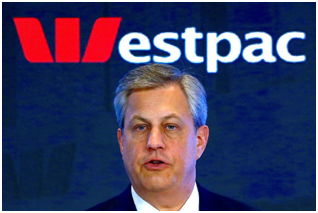Corporate Governance Assignment: Impact of Business Decisions from Different Perspectives
Question
Task: Editorial Task
This task on corporate governance assignment asks you to consider the impact of business decisions from different perspectives and then write a cohesive argument to support others’ points of view rather than your own. This task is also designed to improve your business research skills. Researching the business environment is an important skill for any manager.
You are required to research a particular problem in sufficient detail to be able to discuss the problem from differing points of view. If you consider differing stakeholders and the impact that the problem will have on them, you will more easily be able to construct different cohesive discussions.
The task is more difficult than it sounds because of the limited word count that you are given. Within this limited word count, you are required to mount a lucid and convincing argument about the topic from two different points of view. Remember these must be different perspectives on the provided case and therefore should have a different expected outcome. As there are two different expected outcomes, there will be different discussions that lead to that outcome.
As this is an academic piece within a different format in-text citations are not required, however (and this is important), you must include a bibliography. A bibliography includes all places where you have found information about the topic, even if you have not included any specific information in your work.
The topic:
Westpac has been in the news recently regarding the millions of alleged breaches in relation to money-laundering transactions. Westpac CEO Brian Hartzer dramatically resigned in early December 2019 and the Chairman of Westpac Lindsay Maxsted will also stand down from his position early. The bank has drawn public criticism for paying Hartzer $2.69 Million on his departure.
In your editorials, you must consider the executive remuneration issue from different ethical/moral perspectives (e.g. take one position from a wider community perspective, and a contrasting position from a business/shareholder perspective).
Corporate Governance Assignmentdetails:
Write two editorials (500 word limit for each editorial), one for each of two different media outlets that have different readerships, owners and perspectives (for example, if you choose print media, your two editorials might be for “The Courier Mail” newspaper and the “Australian Financial Review” newspaper). You do not have to restrict your choice of media outlet to print, you may choose digital media platforms such as news blogs and similar. You may, as an example, choose one editorial to be written for a print medium such as the “Australian Financial Review” and your second editorial for the web news outlet “Huffington Post Australia”. Each media outlet you choose must have a different audience and should be owned by different stakeholders. You will need to research the style of editorial/opinion pieces that each of your media outlets provides and prepare your own editorials accordingly. These outlets have different concerns and points of view and you are expected to write each editorial giving regard to these differences.
Answer
This editorial presented in the corporate governance assignment is written for the “Australian Financial Review” keeping in mind the readers who has knowledge of finance
Title: Broad Responsibility
The CEOof Westpac,Brian Hartzer,resigned from his post on charges of alleged bank fraud at a worth ofA$23 million violating the Australian anti-money laundering legislations(Kaye, 2019).Mr.Hartzeris serving 12 months' noticeperiod. Hewill also be paid his full A$2.7 million salaries for the period. However, his so-far invested short and long-term bonuses will not be paid and he will not be eligible for any future bonuses.MrHartzerhas been the CEO of the bank since 2015. Theshare price of Westpac surged by 1.84% as the news of the CEO’s departure broke in the market (Hooper & Head, 2019).
The bonus payments have been frozen for Westpac’s entire executive team and a handful of the general management as it gets to the bottom of its money-laundering scandal. The bank stated in a press release that either the entire amount or a part of the 2019grant will be suspended for the entire executive team, subject to the assessment of accountability. The executive committee is unbelievably well-compensated, so if their compensation is not tied to the shareholders’ returns, everyone would be playing a tricky game (McIlroy, 2019). The value created by many CEOs has largely disappeared. The profits most of the companies reported on creating value have something to do with the auditors as they approve of such figures.

The real fact is that most of the senior executives use the firms like teller machines, provisioning for themselves a fat compensation and perquisites. The dazzling sums of money dangled in front of executives establish the fact that they arecorrupt. The executives at fraud firms use vested options, like selling more stocks and receiving greater compensation during the fraud years. TheWestpac stocks declined around 20% on an average as the news of the fraud broke in the market(Butler, 2019).The phenomenon advocates that the organisational stocks were fraud inflated.
Most of the financial companies nowadays use clawback policies for employment contracts facilitating bonus and incentives ruling it in favour of the business keeping aside the interest of the employees in question. It is used as a safeguard to protect the organisation financially and socially on account of unethical behaviour of the employees. The clawbacks of incentives and bonuses paid to the senior executives on account of such misconduct would lead towards reinstating financial performance.
There is no doubt that the finance industry has learned lessons from Westpac case. The Australian government is looking forward to largely automated systems in banks. Every bank now has a common interest in ensuring that they are working to boost their capability in the area of fighting financial crime in all forms. Thedebacle of Westpac scandal tends the non-profitable organisations to reconsider its various holdings with the organisation as it might be harmful to serve their cause. It is high time companies and executives need to be responsible, and that failure to do so would prove very costly.
This editorial is written for “Huffington PostAustralia” for the general readers
Title: Westpac Scandal – A Strike on Corporate Governance
Westpac, the 200-year-old Australian lender, is alleged with an amount of A$23 million under anti money-laundering legislations that has plunged the bank into crisis and astounded the financial sector (Kaye, 2019). The allegation is that the bank did not reportedpayments worthmore than A$11 billion, originally designed to help facilitate pensioners(Butler, 2019).The scandal has already forced out Westpac CEO and with the Chairman to retire in the coming days, it calls for more at the Board level. The banking regulator, Australian Prudential Regulation Authority (APRA) instructed Westpac to keep idle asupplementary amount of A$500 million as capital.This is for the purpose of the continuing investigation gets underway paving for heavy fines for Westpac and strict punitive action against the alleged members.

Post-release of the scandal, the Westpac CEO, Brian Hartzer released a public apology and guarantee that the bank will learn from its mistakes. The introduction of low rate credit cards, lower transaction fees, amendment of remuneration structures, and some of the measures taken by Westpac to remedy its misconduct. Since 2015,Hartzer was the CEO at the bank and already asked to serve a 12-month notice period against a payment of worthA$2.68million for the period (Hooper & Head, 2019). He is the third CEO on the list amongst the "big four" Australian banks to leave since the royal commission in 2018. The stock price of Westpac increased by 1.84% following the news of the departureof Hartzer. The aspect of accountability will be determined sometimes later down the line. However, the CEO and Chairman is responsible for ensuring that the organisational actions are conducted properly. After acrucial meeting with the shareholders, it is decided not to leave the post of CEO vacate for a longer time. SoPeter King was appointed as the acting CEOof Westpac. It is not surprising that the administration welcomed the move to replace Hartzer, but that would not stop the blaze continuing to engulf Westpac (Du Plessis, Hargovan, & Harris, 2018). It is just a temporary solution to the big gap left by Hartzer but the broad question of sustenance still looms. For the past several years, investors have been highly evaluative on executive compensation. Investors want the board members to think and work towards shareholders’ best interests. They want the executive committee of the corporations to have clarityin communicating their businessdecisions (Button, Gee, & Brooks, 2012). The investors expect the executive compensation programs and decisions to have integrity. After all, the organisational goals are aligned with the broader interests of the shareholders andexecutives. Westpac in a press release disclosed that part of its latest earnings of A$900 million equivalent to $570 million have been kept aside(Butler, 2019).This is on account of the supposed penalty levied by the Australian enforcement authorities owing to the money laundering scandal and child exploitations in the Southeast Asian territories. Thesad part is, the price needs to be borne by the investors and customers.
Bibliography
Butler, B. (2019, November 25). Westpac's CEO Brian Hartzer resigns over money-laundering scandal. Retrieved from the Guardian: https://www.theguardian.com/australia-news/2019/nov/26/westpac-chief-executive-brian-hartzer-resigns-over-money-laundering-scandal
Button, M., Gee, J., & Brooks, G. (2012). Measuring the cost of fraud: An opportunity for the new copetitive advantage.Corporate governance assignmentJournal of financial crime, 19(1), 65-75.
Du Plessis, J., Hargovan, A., & Harris, J. (2018). Principles of contemporary corporate governance. Sydney: Cambridge University Press.
Hooper, N., & Head, B. (2019). Smarter than us Company Director, 35(5), 36.
Kaye, B. (2019, November 26). CEO of Australia's Westpac exits over money laundering scandal. Retrieved from reuters.com: https://www.reuters.com/article/us-westpac-regulator-ceo/westpac-ceo-resigns-as-money-laundering-scandal-rocks-australias-second-biggest-bank-idUSKBN1XZ2FH
McIlroy, J. (2019). Westpac scandal underlines coalition's hypocrisy on banks, unions. Green Left Weekly, 1247(1), 7.












